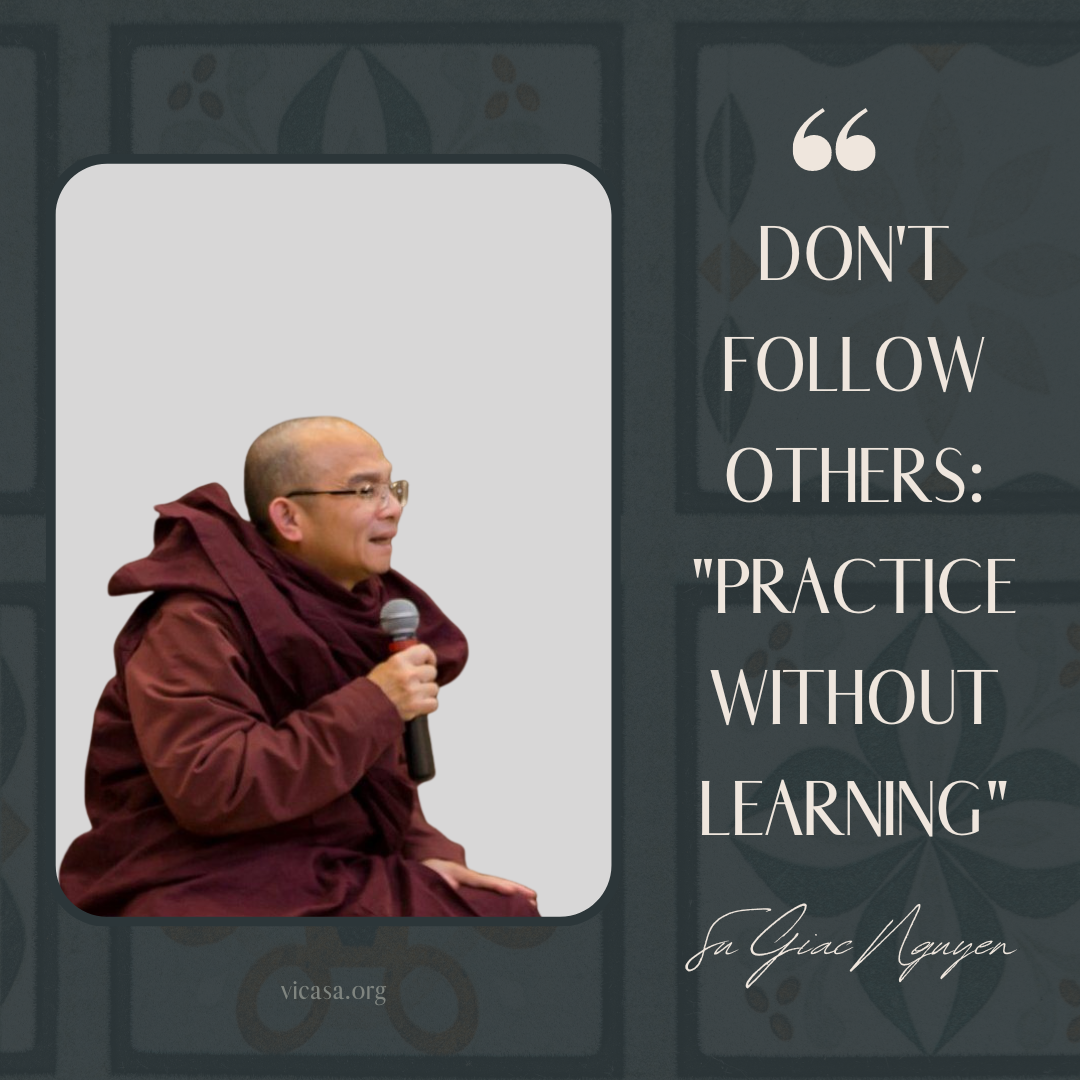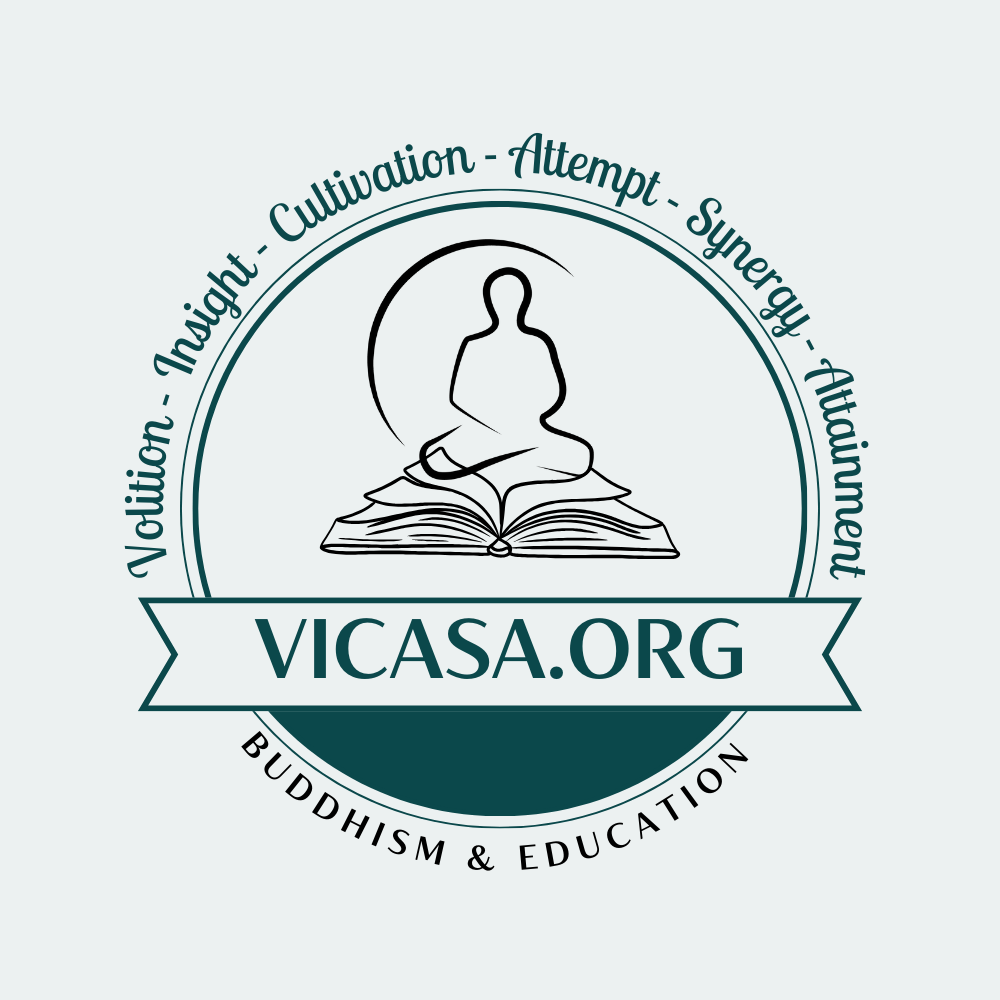
It has been said that learning can waste too much time, and practitioners must just focus on doing meditation. The practice of practicing without studying is becoming increasingly popular.
There are individuals I come across who express honestly that I feel remorseful for them: ‘I used to hear those expressions. I encounter many things that I am unfamiliar with when I meditate. Even when I inquired about it with the teacher, he explained it to me, but I still failed to comprehend it. The issue is that they were convinced that studying was a waste of time in the past, so they focused only on doing so. Instead of learning about water, we should drink it.
Although it may seem easy to comprehend, practicing is distinct from drinking water. When practitioners meditate, many problems arise because they are unaware of what they are doing. Then they asked the teacher who explained it, but they still didn’t understand because the teacher’s explanation was specialized. They explain the technicalities, but they still need to be grasped. The instructor must express his ideas in detail, but his explanations are useless if they don’t have a foundation. If I assume that the teacher explains patiently, how many practitioners can he help?
Because the fifty practitioners were as numerous as the Yuan army, the teacher had difficulty explaining to them from the start. However, it was truly impossible. Why? Since he lacks foundation, he cannot add, subtract, multiply, or divide, so how can we instruct him in algebra? He cannot write ABC, so how can we instruct him on equations and equalities? The reason it sounds reasonable is because we were lured. What has led to that? I am not going to distort the truth. As someone who is a lousy student and too lazy to study, they enjoy being tempted. When you hear statements like, ‘I’m like a worldly person who is always thirsty, then the teacher will provide me with water to drink once you come in. Studying chemistry, such as hydrogen, oxygen, nitro, and carbonic, is tiring for you now. It’s incredibly exhausting. Put an end to it. Drinking water is better than studying anything else.
It sounds amazing. But when it collides with reality, you will know the positive and negative consequences. When you start meditating in the evening, so many problems flood in, they come out, and then you are shocked, and the most hurtful thing is when you ask the meditative guide for an explanation, but you don’t understand what he clarifies, how pitiful! At that time, the practitioner relied on the master without grasping his meaning. I want to stress again how little someone understood the addition, subtraction, multiplication, and division required in math classes in grades 10 and 12. It is impossible for the teacher to impart to a disciple who does not know how to add, subtract, multiply, or divide.
Practitioners have to acquire knowledge. Since I have type 2 diabetes, I have had to learn. Learning the Dhamma requires more information. What I taught in prior seminars was how to practice, not how to become a scholar who can debate. No way. However, you must have comprehension. And all I’ve discussed this morning is founded on the Four Foundations of Mindfulness. I’m not teaching about acquiring complex theories and then battling with others. No. This morning, I’ve exclusively discussed practitioner-related topics.
Here, I speak truthfully and without promotion. I hope that after the compilation of the Kalama center is built, each retreat will be separated into two parts: theory and practice. What does this mean? Practitioners at other meditation centers frequently pass away without mastering the meditational ways. When they participate in the meditation retreat, the teacher calmly instructed them, “You will follow the breathing subject for the first ten days beginning today. You are already familiar with how to breathe. You are exhaling when you do so. When you take a breath, you can feel it obviously because you are simply following your breath without trying to control it. Contact us, our assistants, or someone sitting close to you if something goes wrong. After that, everyone keeps sitting. Select a posture that seems comfortable. Don’t bind up; dress comfortably, warmly, and coolly for the upcoming season.”
And that’s it. It is completed. That’s all I have to say. Maintain an empty mind—nothing at all. That is also how simple-minded people can do it. That is, inhaling, realizing that you are breathing in, and exhaling, realizing that you are breathing out. Someone leaves right there and heads home without knowing anything. Alternatively, there were meditation classes where we studied loving-kindness for three days before learning about breathing. What is loving-kindness? It involves finding a comfortable spot and posture to sit and then focusing your thoughts on all living things—male and female, transcendent, fallen, commonplace, and holy—in the direction of the East. I send my best wishes for happiness and tranquility to all beings in the East. Next, turning westward, sending blessings to all men and women who are transcendent, fallen, common, noble, and then southward and northward. Completed yet?” He continued, “There needs to be water in the bucket if you want to water.” You must possess loving-kindness if you wish to share it. “Are you finished?” “Yes,” nodded one more, “Sit!”
Once practitioners were gone, they had no idea. His lack of study of the doctrine was the issue. In addition to antagonistic reactionary forces stuffing him with the notion that “you don’t need to learn anything to practice, just come and sit,” someone had stuffed him with the wrong things. However, it makes perfect sense to say, “If you’re thirsty, just drink some water; there’s no need to learn about the components.” you initially thought it was excellent, but after practicing, you understood that without study, knowledge is impossible. Had every member of the last 26 centuries of the Buddhist lineage been a supporter of not studying anything, our Buddhism would have been utterly destroyed by now.
Ven. Giac Nguyen
English Translator: Hạnh Đất
